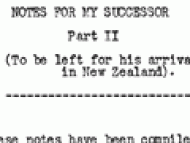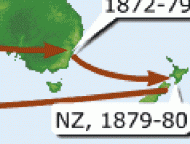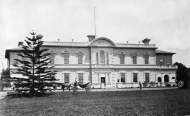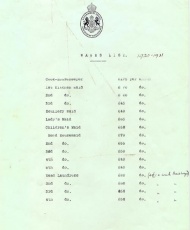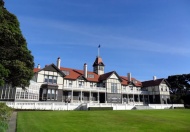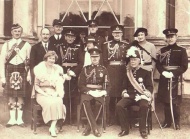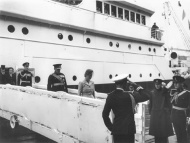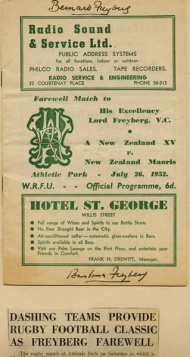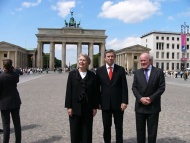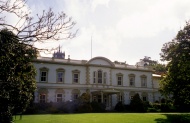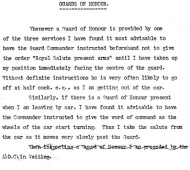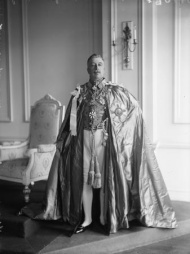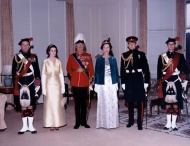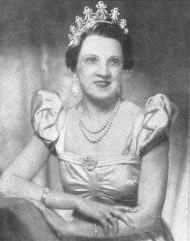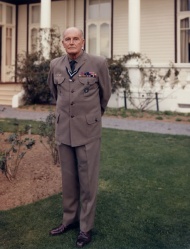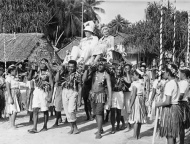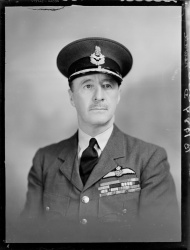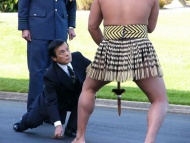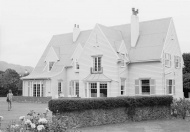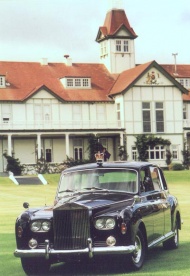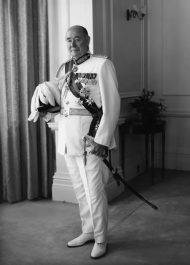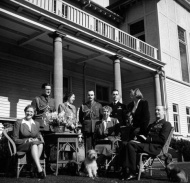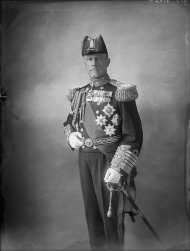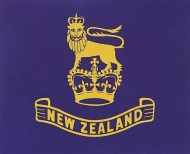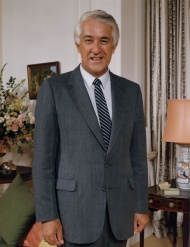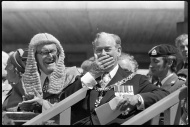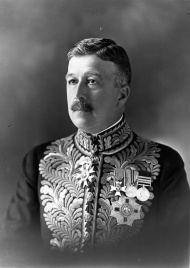Events In History
-
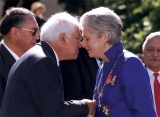 4 April 2001Silvia Cartwright becomes governor-general
4 April 2001Silvia Cartwright becomes governor-generalThe swearing-in of Dame Silvia Cartwright as New Zealand’s 18th governor-general completed a female clean sweep of the country’s most powerful political and legal positions. Read more...
-
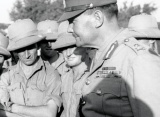 22 November 1939Freyberg given command of 2NZEF
22 November 1939Freyberg given command of 2NZEFBritish-born but New Zealand-raised, Lieutenant-General Sir Bernard Freyberg was a charismatic and popular military leader who later served as governor-general. Read more...
Articles
Notes for My Successor
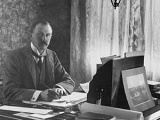
Until the late 1960s New Zealand's governors-general were British, mainly minor aristocrats, or admirals or generals.
-
Page 2 – Jobs for the boys
As the new boy would have known, it was a so-called job for the boys, a political gift. Lords Bledisloe (1930–35), Galway (1935–41) and Sir Bernard Freyberg (1946
-
Page 4 – Staff and servants
Lord Bledisloe (1930–35) felt that senior staff 'should be fond of dancing and of games and sport of all kinds, as these accomplishments appeal to people here I
-
Page 3 – Hail and farewell
The new governor-general had to make a good impression. That meant landing in the capital.
-
Page 5 – A home away from 'Home'
Government House in Wellington is a busy place. Every year it hosts about 15,000 guests at 200 functions.
-
Page 6 – Pay and perks and handy hints
The colonial government cut the vice-regal salary and allowances from £7500 to £5000 in the late 1880s, just when the declining British aristocracy was looking to the
-
Page 7 – The governor-general on the move
How the governors-general moved about the country
-
Page 8 – From lieutenant-governor to governor-general
An outgoing governor-general's 'Notes for My Successor' have had their day. New Zealand governors-general already know the country and have no need to pack their household
-
Page 9 – Further information
Find out more about the governors general of New Zealand.
Empire Day
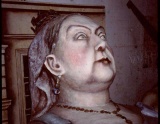
Empire Day (24 May), celebrated widely in New Zealand from 1903, was a major event in the viceregal calendar.
- Page 1 - Empire DayEmpire Day (24 May), celebrated widely in New Zealand from 1903, was a major event in the viceregal
History of the Governor-General
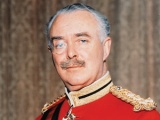
New Zealand has had a governor or (from 1917) a governor-general since 1840. The work of these men and women has reflected the constitutional and political history of New Zealand in many ways.
-
Page 2 – Modern duties
The governor-general's duties are divided into three functions: ceremonial, community and constitutional.
-
Page 3 – Crown colony era
New Zealand became a British colony in 1840, legitimised by the Treaty of Waitangi and Lieutenant-Governor William Hobson's 21 May declaration of sovereignty.
-
Page 4 – Responsible government
From the 1840s settlers demanded a say in government. Governor George Grey suspended an overly elaborate constitution in 1846, but the New Zealand Constitution Act 1852 gave
-
Page 5 – Splendid ornamentals
With the appointment of Lord Onslow in 1889, a new type of governor took up residence in Government House.
-
Page 6 – Regalised
The constitutional arrangements of the British Empire changed greatly between the creation of the Imperial War Cabinet in 1917 and the passing of the Statute of Westminster in
-
Page 7 – Patriated
Late last century, New Zealand governments patriated (indigenised) the governor-generalship.
-
Page 8 – Uber diplomat?
From 1926, in accordance with decisions taken as a consequence of the Balfour Declaration, governors-general merely represented the sovereign in New Zealand.
-
Page 9 – Further information
Find out more about the history of the Governor-General.
Viceregal visiting
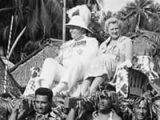
'To be invisible is to be forgotten,' constitutional theorist Walter Bagehot (1826–77) warned. For the King or Queen's New Zealand representative, the governor-general, that meant hitting the road
-
Page 2 – Putting on appearances
New Zealanders loved a good viceregal do, and no one was observed more closely than Their Excellencies.
-
Page 3 – Organising a small-town do
Empire may have shrunk in the 1950s, but no one wanted to be bypassed.
-
Page 4 – Some say yes; some say no
Like his predecessors, Sir Denis Blundell (1972–7) travelled widely throughout New Zealand.
-
Page 5 – Recent changes
By the 1970s, the nature of viceregal visiting had changed. New Zealanders, not Britons, now held the job, so they did not need to be introduced.
-
Page 6 – Further information
Find out more about viceregal visiting.
Governors and Governors-General

New Zealand has had 16 resident governors and 22 governors-general. Two early governors were called governor-in-chief.
-
Page 2 – Selection process
In the days of the Empire, the British government appointed New Zealand's governors and governors-general. New Zealand had no say.
-
Page 3 – Career paths
As the job evolved over time, so did the type of person needed to govern successfully. Between 1840 and 1853, when governors ruled personally, they were junior navy or army
-
Page 4 – Genes, gender and age
From 1840 until 1972, New Zealand's governors and governors-general were British.
-
Page 5 – Further information
Find out more about the governors and governors-general of New Zealand.
The House of Representatives
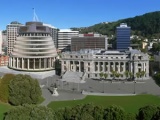
New Zealand's Parliament dates back to 1854, just 14 years after the signing of the Treaty of Waitangi and the beginning of the European settlement of the country. For most of its history as a nation state, New Zealand has had some form of elected government.
- Page 3 - ParliamentToday there are two parts to Parliament – the House of Representatives (or the Lower House) and the Governor-General, but between 1854 and 1951 there was a third part, the
Queen Elizabeth II

Queen Elizabeth II became New Zealand's monarch on 6 February 1952, following the death of her father, King George VI
- Page 2 - Constitutional and public ceremonial rolesThe Queen was New Zealand’s head of state. Her title was confirmed by Royal Titles Acts of 1953 and 1974, the latter entitling her ‘Elizabeth the Second, by the Grace of God
Biographies
-
 Freyberg, Bernard Cyril
Freyberg, Bernard Cyril
A First World War hero and commander of the 2nd New Zealand Expeditionary Force, Bernard Freyberg proved to be a charismatic and popular military leader who would later serve a term as Governor-General
Read more... -
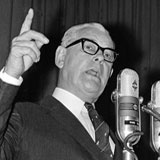 Holyoake, Keith Jacka
Holyoake, Keith Jacka
‘Kiwi Keith’ Holyoake, the first officially designated deputy PM (1954) was our third-longest serving leader.Although criticised for sending troops to the Vietnam War, he is now seen as ‘the most dovish of the hawks’, doing the bare minimum to keep America happy.
Read more... -
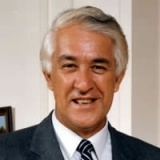 Reeves, Paul Alfred
Reeves, Paul Alfred
Sir Paul Reeves was Archbishop of New Zealand and in 1985 became this country's first Māori governor-general.
Read more...
Related keywords
- queen elizabeth
- cyril newall
- rural
- keith holyoake
- fashion
- bernard freyberg
- clothing
- 1970s
- denis blundell
- west coast
- hokitika
- raglan
- governor
- domestic staff
- charles bledisloe
- alcohol
- lord ranfurly
- national identity
- british empire
- australia
- royalty
- law
- westminster
- government
- transport
- shipping
- trains
- cars
- scottish
- irish
- catherine tizard
- paul reeves
- arthur porritt
- robert muldoon
- lord galway
- centennial exhibition
- parliament
- universities
- auckland city
- auckland university
- architecture
- thomas gore browne
- george grey
- legislative council
- liberal party
- lord onslow
- wellington city
- WW2
- battle for crete
- north african campaign
- italian campaign
- victoria cross
- charles norrie
- 1950s
- dunedin
- rugby
- silvia cartwright
- germany
- historic places
- lord liverpool
- bernard fergusson
- great depression
- americans
- communities
- suffrage 125
- charles fergusson
- walter nash
- lord cobham
- gay rights
- law reform
- te ati awa
- japanese
- housing
- lower hutt
- prime ministers
- MPs
- national party
- jim bolger
- flags
- eleanor roosevelt
- south african war
- empire day
- david beattie
- 1980s
- lord jellicoe
- women in politics
- parliament buildings
- maori
- springboks
- radio broadcasts
- 1960s
- freemasons
- vietnam war
- george gipps
- public holidays
- treaty of waitangi
- william hobson
- robert fitzroy
- WW1
- swimming
-
Main image: A private audience with Her Majesty
The Queen and Governor-General meeting by video call



